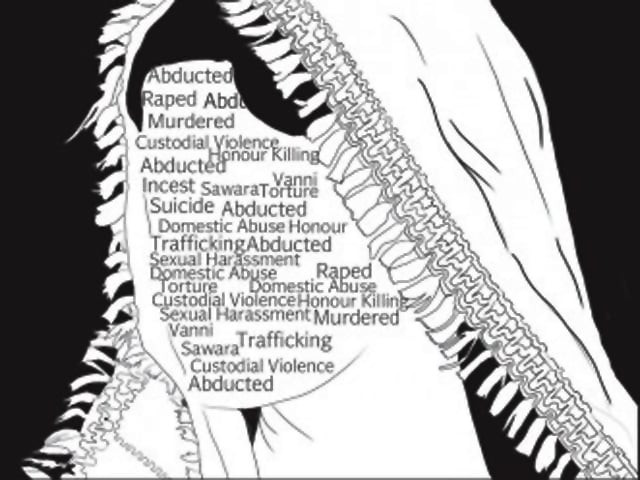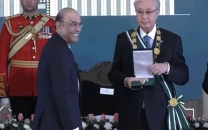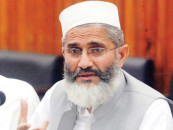Violence against women: Reported cases continue to grow, devolution raises hope
Provinces say ‘considerable’ progress made in spreading awareness on laws against sexual harassment at workplace.

As the stakeholders are pinning hopes on post-18th amendment setups to curb violence against women, the incidents of harassment and sexual abuse at workplaces are on the rise.
This situation has been depicted in reports prepared separately by two organisations campaigning for women rights and devolution of women ministry.
“The situation is deteriorating as the number of incidents of violence against women is on the rise,” says a report launched by Aurat Foundation on Tuesday.
Some experts, however, believed that a major factor for this was increasing awareness on the issue, which was leading to reporting of more cases.
On the other hand, the National Implementation Watch Committee (NICW) held its sixth meeting on implementing the laws against sexual harassment at workplace. After the 18th amendment, the implementation of these laws has become a provincial subject; the committee discussed the issue with representatives of various provinces. The officials responded by saying that development on the issue was “considerable”.
Violence continues to grow
Policy Data Monitoring Programme-Violence Against Women (PDM-VAW) of Aurat Foundation launched its third annual report titled “Violence against women in Pakistan: A Qualitative Review of Statistics for 2010” at a seminar in Islamabad.
Rabeea Hadi, National Coordinator PDM-VAW, during her welcome note said that positions of the 50 districts that top the list of rate of violence have remained unchanged since 2008.
In 2010, 8,000 incidents of violence against women were reported; 5,492 cases were reported from Punjab, 1,652 from Sindh, 650 from Khyber-Pakhtunkhwa (K-P), 79 from Baluchistan and 127 from Islamabad. The figures of Islamabad are alarming given the small population and high security in the capital.
Ehsan Sadiq, an expert, in his presentation said that although the situation of violence against women is not encouraging, the fact remains that most such cases get reported now, which will “surely” help bring down the number of such cases.
However, No FIR was registered in a large number of incidents, reflecting peoples’ lack of confidence in police, the report said.
Anis Haroon, Chairperson National Commission on the Status of Women, in her concluding remarks, said that mega violence in Pakistan, like terrorism, is one major reason why the issue of violence against women is swept under the carpet.
Provincial setup breeds hope
In NIWC’s meeting, each of the four representatives of K-P, Punjab, Balochistan and Sindh said that they had made “considerable” progress in raising awareness about the laws against sexual harassment at workplace.
While sharing the progress from K-P, Muhammad Imtiaz Ayub, Director Social Welfare and Women Development, said that social welfare and women development department has constituted committees in their departments that are headed by additional secretaries. The code of conduct has been printed and displayed within the departments to ensure that everybody is aware of the mechanism in place.
The report from Women’s Development Department Sindh was more overwhelming. Musarrat Jabeen, Deputy Secretary Women Development Department Sindh, said that harassment committees have been formed in 10 line departments affiliated with the Sindh govenrment in four districts. She added they have put up billboards, made brochures and posters that they have distributed in all universities in Sindh and the line departments in four districts.
From Balochistan, Salma Qureshi, Additional Secretary, Standing Committee on Ministries, Women Development Department, said their department has conducted training sessions for government officials, judiciary, women parliamentarians, non-governmental organisations and police officers. The government has also constituted departmental committees to address harassment cases.
Punjab’s representative Sajjad Sipra, Director Women’s development, said Punjab government is in the process of finalising a Provincial Ombudsman. He said the NIWC has briefed almost 1,350 teachers about the anti-harassment act and its complete implementation mechanisms.
Dr Fouzia expressed her satisfaction over the initial activities and offered full support to the provinces in the future.
Published in The Express Tribune, July 6th, 2011.



















COMMENTS
Comments are moderated and generally will be posted if they are on-topic and not abusive.
For more information, please see our Comments FAQ